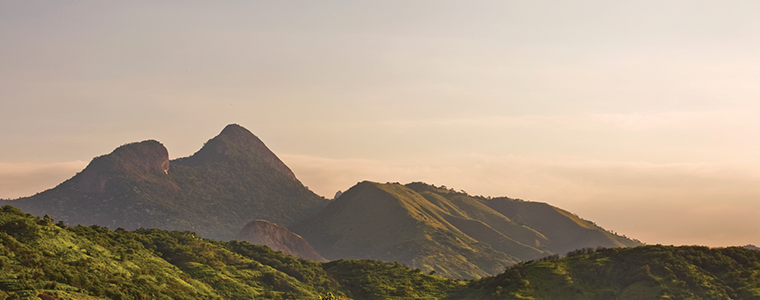Hidden in the rainforests, deserts, and mountains of Latin America and the Caribbean lay the keys to reversing the impact of global climate change. The region claims the world’s largest single-source of oxygen, most diverse species of flora and fauna, and several Natural Wonders of the World that need our help. The next great challenge for our generation is to join together to save these precious resources that are rapidly disappearing due to the effects of rising sea levels and more extreme weather patterns. Here are ongoing initiatives focused on preserving four sites vital to the ecological future of our planet:
- Amazon, South America– The world’s largest rainforest lies in the heart of South America with territory in eight countries: Bolivia, Brazil, Colombia, Ecuador, French Guiana, Guayana, Suriname, and Venezuela. The Amazon is the world’s largest source of biodiversity and one of the most determinant factors of the health of the planet. The quality of Earth’s air depends on the vegetation of the Amazon rainforest, and with alarming trends of deforestation, water pollution, and resource extraction, it is more threatened than ever. Initiatives that have come out of the Paris Summit to regenerate forests and cut carbon emissions lead the way toward a global solution to maintaining the precious resources in the Amazon. The Sustainable Colombia Initiative sets an example for countries in the region to systematically address rural development and reforestation efforts in the Amazon in adherence to global commitments agreed upon in Paris.
- Chihuahuan Desert, Mexico and the United States – The Chihuahuan Desert is the largest in North America spanning both Mexico and the United States, thus, the challenges posed by climate change are coordinated between both countries. In Mexico, the Chihuahuan Desert is one of the most vulnerable areas to maintain because of the scarcity of water needed to support more than 1,000 endemic species, as well as farmers and livestock on both sides of the border. A binational treaty signed in 1944 has been the solution to buffering the desert from extreme draughts and managing its shared water resources according to the natural watershed of the Chihuahuan Desert which encompasses seven states across two nations. Continuing this cross-border partnership to combat the intensifying effects of climate change is the best solution to preserving the desert’s biodiversity.
- Lake Enriquillo, Dominican Republic – The largest lake (375 km²) in the Caribbean has been expanding at a rate of 1 meter per year over the last decade, destroying farmlands and homes of some of the most vulnerable people and wildlife in the Dominican Republic. Researchers say the lake has doubled due to heavy rains and is now the size of Atlanta, an unprecedented global phenomenon. Scientists suggest that climate change is the root cause behind the rising water, although they have yet to discover the precise reasons. Meanwhile, the most recent S. National Climate Assessment forecasts more extreme weather patterns in the Caribbean with fewer, but more intense tropical storms. In an attempt to slow the impacts of climate change, Dominican Republic has invested $24M to launch a one-of-a-kind green cities project to create a sustainable living community for the people who had once lived in what is now Lake Enriquillo. This new city is called Nuevo Boca de Cachón and is home to more than 560 families.
- Machu Picchu, Peru- The ancient Incan civilization in Machu Picchu, one of the most astounding wonders of the modern world, has been continually threatened by climate change and El Niño. Rising temperatures causing glaciers to melt have led to dangerous mudslides and flooding inside Machu Picchu. Conservation efforts that the government and local tour operators are taking to educate visitors on how to best take care of this treasured site include sustainable tourism measures to reduce the use of plastic bags and batteries that create pernicious sources of waste.
About the Author: @geovannyvicentr
Geovanny lives in Washington, D.C. He is a lawyer, political scientist, and university professor. He specializes in public policy and public administration, with several years of experience in the public sector. He holds degrees in Administrative Law, Criminology, and Prisons Law. Geovanny regularly speaks at conferences on subjects of his expertise, including Public Administration, Civil Service, and Open Government. He is the Director of the Center for Public Policy, Development, and Leadership of the Dominican Republic (CPDL-RD), and the recipient of the Dominican Republic’s National Youth Award in Professional Leadership granted by the Dominican Presidency and Ministry of Youth.


What a great article! Que buen artículo!!!!